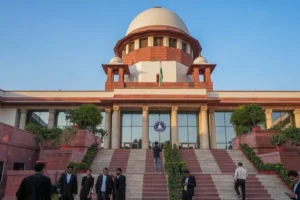Supreme Court Upholds Right to Raise Juvenility Claim at Any Stage

New Delhi, July 24, 2025
In a rare and controversial decision, the Supreme Court of India has referred a 53-year-old rape convict to the Juvenile Justice Board. He was convicted of raping an 11-year-old girl in 1993. The ruling comes 37 years after the crime. It follows his claim that he was a minor at the time of the offence.
A Rajasthan court sentenced him to 10 years of rigorous imprisonment in 2024 under Section 376 of the IPC. The High Court upheld the conviction. Later, he moved the Supreme Court, asserting that he was a juvenile when the crime occurred.
The Supreme Court bench, comprising Justices B.R. Gavai and Augustine George Masih acknowledged that, under the Juvenile Justice (Care and Protection of Children) Act, a person can claim juvenility at any stage even after conviction.
As per the Supreme Court’s directive, the district and sessions judge in Ajmer, Rajasthan, will now hold an inquiry. The judge must determine whether the convict was under 18 at the time of the crime. If proven, the trial court’s sentence will be set aside. The man will then face proceedings before the Juvenile Justice Board.
Legal experts and victims’ rights groups have expressed mixed reactions. While the judgment strictly adheres to legal protections under the Juvenile Justice Act, critics argue that it undermines justice for the survivor and sets a dangerous precedent. “The law allows this, but is it ethical justice? That’s the debate,” a senior advocate told.
The case also raises questions about the verification mechanisms in place during initial investigations and trials. The convict did not claim juvenility during the trial or in his High Court appeal. He raised the issue only after his sentence was confirmed, submitting a new affidavit and school certificate to the Supreme Court to support his claim that he was a minor in 1993.
The case will now proceed under the special juvenile mechanism. This process follows separate procedures focused on guilt assessment and rehabilitation, not conventional sentencing. Based on the inquiry’s findings, the convict may face release, rehabilitation, or any other remedial measure allowed under the Juvenile Justice Act.
The court reaffirmed that juvenility can be claimed at any stage of a trial. While the rule protects minors, its application in decades-old heinous crimes may now face renewed scrutiny.
Source
